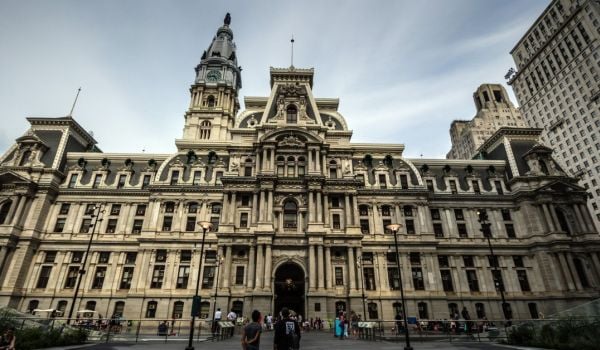City of Chicago Eyes Grocery Store Purchase
The shutdown of an Aldi on the West Side of Chicago has prompted city officials to consider using eminent domain to purchase the store, WBEZ Chicago reports.
Ald. Jason Ervin of the 28th Ward says the idea is to combat a food desert. TJ Crawford, executive director of the Garfield Park Rite to Wellness Collaborative, organized a petition to the city, urging officials to purchase the building and sell to a new grocer. Crawford told WBEZ, “We want to make sure that the grocer that comes into this space is committed to the community and has a much more integrated, cooperative relationship with the community than Aldi’s had.”
“By us saying we [are] going to acquire it, [it] kind of puts a damper on anybody else wanting to acquire it for any other purpose,” Ervin said, adding that the city intervention would be “an investment in the future of the community and an investment in the health of the people of the community.”
The city’s Community Development Commission and the Plan Commission have approved the purchase. A council committee will vote on February 15.
D.C. Mayor Invites an NFL Washington Commanders Arena
Mayor Muriel Bowser called on the Washington Commanders football team to return to D.C. during a press event last Thursday, DCist reports. The NFL team currently plays at FedEx Field in Maryland, and their lease is set to expire in 2027.
Several elected officials are seeking to attract the Commanders, with Gov. Glenn Youngkin saying that he’s open to creating a stadium authority in Virginia; economist Michael Farren told WTOP News that the new authority would put an increased burden on taxpayers.
Bowser’s proposal could see the city pitching in half for project development. But some council members seem hesitant to put taxpayer dollars into luring the Commanders, citing sexual harassment allegations related to team owner Dan Snyder. Council Member Charles Allen’s opposition is rooted in a wariness of “stadium welfare.” Arena subsidies for team owners rarely yield much benefit for residents. “We can do so much better for housing, jobs, parks, & the Anacostia River,” Allen said, in a tweet.
New Report Looks at “Occupational Segregation”
“Occupational segregation” caused workers of color to bear the highest level of economic hardship at the beginning of the pandemic, according to a study by the Federal Reserve Bank of Minneapolis.
Workers who provided in-person services, a sector with overwhelmingly larger shares of workers of color, were more likely to lose their job. Data from the Bureau of Labor Statistics show that while white employment fell by 7.5% during the pandemic, Asian employment fell by 10.6%; Latine employment decreased by 11.4%.
The employment rate of workers of color increased in 2021. But while Asian workers returned to pre-pandemic employment levels by Summer 2021, Black and Latine employment rates remained lower than average at the end of last year.
The report’s authors write, “As policymakers look to address the persistent racial inequities in our labor market, as well as the disproportionate economic harms suffered by workers of color during the pandemic, it is important to have a better understanding of how the two phenomena are related. Occupational segregation is an important part of that relationship.”
Next City has reported on people and organizations who are creating the tools needed for an equitable pandemic recovery — and will continue to do so. Read our “Elements of an Equitable Recovery” series here.
This article is part of The Bottom Line, a series exploring scalable solutions for problems related to affordability, inclusive economic growth and access to capital. Click here to subscribe to our Bottom Line newsletter.

Solcyre (Sol) Burga was an Emma Bowen Foundation Fellow with Next City for summer 2021. Burga graduated from Rutgers University with a degree in political science and journalism in May of 2022. As a Newark native and immigrant, she hopes to elevate the voices of underrepresented communities in her work.


















